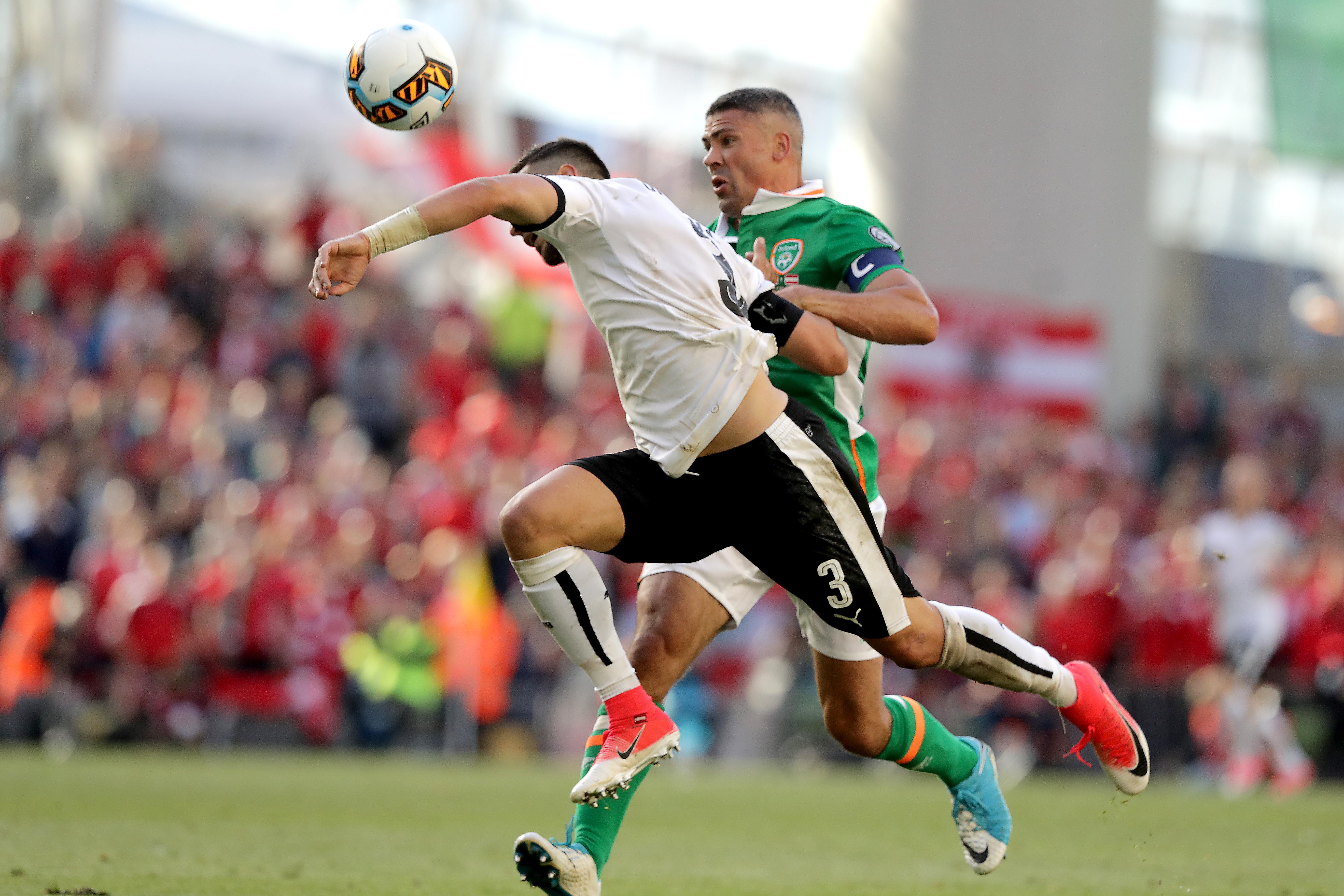

Share
11th June 2017
07:22pm BST

But it turned out, everyone was wrong. What Ireland needed to do was to play even less football. In the 85th minute, Jon Walters chased the kind of long ball that has been the historic duty for Irish forwards to chase.
Walters gave Aleksandar Dragovic a little nudge and the ball dropped at his feet. Walters’ finish was flawless, even if everything up to that point was in keeping with the game, in fact in keeping with the last thirty years of Irish football.

Ireland then pushed forward using the same methods. Walters could have had a penalty, Shane Duffy had a goal disallowed and Ireland pushed for a winner as the crowd roared their endorsement of these familiar methods.
Ireland didn’t get a winner, but they did enough to keep despondency at bay, even if there are serious questions about O’Neill’s approach,
Ireland have played negatively in their two home games this year and are lucky to have two points from those two games.
The lack of imagination in the game against Wales was overshadowed by the horrific injury to Seamus Coleman. Ireland didn’t make serious efforts to win the game on that night until Wales were down to ten men and while the second half here on Sunday began with some energy, the first half had been wasted.
Ireland made no attempt to play football during an opening spell which underlined, once again, how poor international football has become.
Austria had a little bit to wit, but Ireland seemed to be reverting to stereotype.
https://twitter.com/SportsJOEdotie/status/873963963653947392During the week, Roy Keane had come out with some of that meaningless macho posturing that he specialises in when he said that people “have done a lot more for their country than break their legs. People have died for their country.”
At best, they were just empty words, but as Ireland struggled through the afternoon, they seemed to have gone down a rabbit hole of machismo.
Halfway through the first half, James McClean won a roar from the crowd when he made one of his trademark aggressive charges on Zlatko Junozovic. The fact that he had already won the ball was overlooked by the cheering crowd. This was what Ireland needed: more mindless aggression. The truth was they needed the opposite.
The man to provide it was on the bench. Without Wes Hoolahan, Ireland didn’t have much choice but to make a virtue of their deficiencies and confuse effort with unnecessary and counter-productive aggression.
https://twitter.com/SportsJOEdotie/status/873947628085620736When Hoolahan did come on, it was with 70 minutes gone, as if O’Neill was obeying John Grisham’s rule for thriller writers - get a short timeframe and then shorten it. Wes had a small amount of time. He whipped in an early cross which worried Austria, but Ireland were pursuing other methods and they provided a result.
That approach as something, at least, on a day when many Irish players were unable to manage even the basics. Once again, Jeff Hendrick disappointed while Stephen Ward had an afternoon when he appeared to lose confidence and drain the confidence of those around him as the game went on.
O’Neill had surprised most people by starting Kevin Long beside Shane Duffy, but he was the most secure Irish defender, although he had very little competition.
The game had begun with a long ball forward from Ward drifting out over the end line as Jon Walters chased it. It set the tone for the match. Austria managed to create more and in the opening minutes of the second half, they had the chances to score a second which would have put the game beyond Ireland's reach.
But Ireland rallied, as they always do under O'Neill. They had a period of pressure early in the second half when it seemed as if anything could happen -anything except playing football, but that didn't matter. Then Walters scored and there was sound and fury to end the game in the way Ireland like to end games.
But it wasn’t enough. Yet Ireland had a draw which felt like a victory, even if draws that feel like victories are still only recorded as draws when the points are added up.
Explore more on these topics: